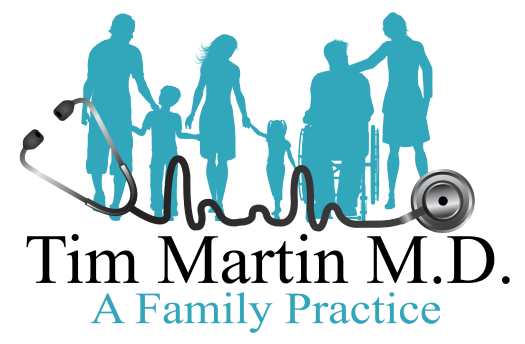
One of the biggest hurdles to overcoming addiction is recognizing it in the first place. The team at Tim Martin M.D. is dedicated to helping men and women in and around Abilene, Texas, who struggle with opioid addiction overcome their dependence — beginning with understanding its signs.
Led by Dr. Tim Martin, our compassionate providers, offer support and treatment for those dealing with opioid dependence. Opioids affect your brain in ways that make it easy to become addicted, even if you only use them for a short time, like after an injury or surgery.
The drugs cause a release of “feel good” endorphins in your brain, bringing a sense of calm and wellbeing. The feeling is short-lived, however, causing the desire for more opioids. As you take more, your brain changes and expects more of the drug, leading to an opioid addiction.
If you think you or a loved one have an opioid addiction, it’s best to seek an evaluation from an opioid dependence specialist, like Dr. Martin. There are some common signs of addiction, however, and knowing what they are can help put you on the track to recovery faster.
An inability to control your use of opioids is one sign that you have an addiction, but there are others. Here’s a look at four red flags that you may have an opioid addiction!
1. Attention and memory problems
Chronic use of opioid medications causes changes in your brain. These changes lead to a significant decline in your ability to sustain attention. In addition, they cause problems with working memory, leading to issues with your ability to learn and hold onto new information.
If you take opioid drugs and find you’re having trouble with attention or problems with your memory, you could have an addiction.
2. Mood disturbances
Recent studies show that a significant number of people who take opioids develop depression in a matter of weeks. And as you continue to take opioids, the risk of developing mood disturbances increases.
If you’ve noticed mood swings or psychological changes, talk to the team about Tim Martin M.D. about opioid addiction.
3. Trouble in your sex life
Opioid addiction may also negatively affect your sex life. It isn’t uncommon for those dependent on opioids to experience decreased libido or sexual dysfunction, like erectile dysfunction. If you use opioid medications and have noticed a decline in your sex life, it’s time to talk to a specialist about opioid addiction.
4. Physical changes
The effects of opioids in your brain can cause physical changes. These changes can affect different body systems and trigger different symptoms, including:
- Constricted (small) pupils
- Slurred speech
- Chronic constipation
- Shallow breathing
- Changes in pain response
Kicking the opioid habit is difficult because of the rewiring of your brain and the withdrawal symptoms dependent users experience when they stop taking the drug. If you have any of the red flags of opioid addiction, contact Dr. Martin for specialized care.
Getting help for opioid addiction
If you recognize the signs of opioid dependence in yourself, you may want to break the addiction cycle, but feel overwhelmed and unsure of where to turn. The compassionate care team at Tim Martin M.D. is here to support and help you every step of the way to recovery.
We recognize how difficult it is to discuss opioid addiction and everything we can to put you at ease. Our innovative treatment program includes a preliminary evaluation with Dr. Martin to discuss your symptoms and behaviors and assess the severity of your addiction.
With this information in hand, Dr. Martin customizes a treatment plan. Everyone needs a plan that works for them, so there isn’t a standard plan. However, Dr. Martin finds most people succeed at overcoming opioid addiction with SUBOXONE® therapy.
SUBOXONE is a prescription medication that eases the symptoms of opioid withdrawal. The medication helps stop extreme withdrawal symptoms, while reducing your cravings for opioids by preventing the “high” feeling they bring.
Our practice offers alternative medicinal treatments if SUBOXONE isn’t the right medication for you. And all of our patients benefit from the added support we offer with referrals to therapists and help to contact support groups.
If you have any of the red flags of opioid addiction, you don’t have to battle your dependence alone! Contact Tim Martin M.D. in Abilene, Texas, to get the support you need. Call the office at 325-268-1230 to make an in-office or telemedicine appointment, or book online now.
